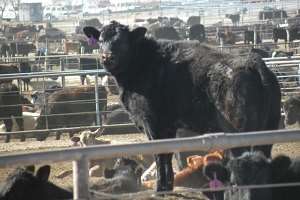National Cattlemen's Beef Association Release
http://www.beefusa.org/newsreleases1.aspx?newsid=6115
Jeopardizing U.S. livestock producers, USDA released their final rulemaking on the 2010 Grain Inspection, Packers and Stockyards Act. Tracy Brunner, National Cattlemen’s Beef Association president said these provisions are very similar to the 2010 proposed rules that industry groups have consistently voiced concern over. He also pointed out that Congress has repeatedly defunded the rules due to the staggering harm they would cause industry.

“The GIPSA rules are especially troubling to the cattle industry,” said Brunner. “As we have consistently stated, if adopted, this rulemaking will drastically limit the way our producers can market cattle and open the floodgates to baseless litigation. In a time of down cattle markets, the last thing USDA needs to do is limit opportunity. The fact of the matter is, we don’t trust the government to meddle in the marketplace.”
USDA has announced the new GIPSA regulations include an interim final rule on competitive injury and two proposed rules to address undue preference and the poultry grower ranking system. While USDA has provided a 60-day comment period, the interim final rule will take effect 60 days from the date of publication.
“USDA is going well beyond their statutory limitations, limiting marketing options for a product that America is demanding,” said Brunner.” If USDA was interested in real solutions rather than increased government regulations, they wouldn’t have rushed these rules out the door at the very close of the Administration’s term, bypassing any input from industry. Cattlemen and women don’t appreciate Secretary Vilsack throwing a grenade in the building as he abandons it.”